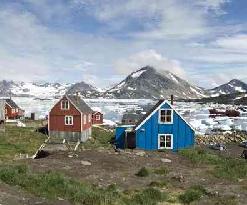Kleist, prime minister of Greenland said on Tuesday, the autonomous territory of Denmark would not automatically look more favourably on firms from the European Union eager to exploit the region's vast deposits of rare earths and other minerals.

Studies put Greenland's deposits of rare earths on par with that of China, or more than 9% of the global total of the elements which, despite the name, is not particularly rare.
China currently produces more than 95% of the 17 elements used in a variety of high tech industries including green energy, military systems and consumer electronics.
BBC quotes Kleist as saying it is not fair to protect the interests of the EU, of which Greenland is not a member but Denmark is, above say China:
Mr Kleist, speaking in the Danish capital Copenhagen, said Greenland needed to develop its resources, as it was too reliant on fishing and subsidies from Denmark.
"I do not see thousands of Chinese workers in the country as a threat," he said, quoted by Denmark's Ritzau news agency.
He vowed to resist EU pressure concerning Greenland's policy on rare earths.
More than half of the dozens of companies exploring Greenland's mineral riches are from Canada and Australia; only 15% are from the EU.
The issue of foreign workers – particularly from China as the country increases its resource investments around the globe – have become a contentious issue in many countries.
In Zambia and Ghana, Chinese miners and mine bosses have come under fire from politicians and locals, while in Canada a brouhaha erupted over recruitment of thousands of Chinese miners to work at a British Columbia coal mine.





